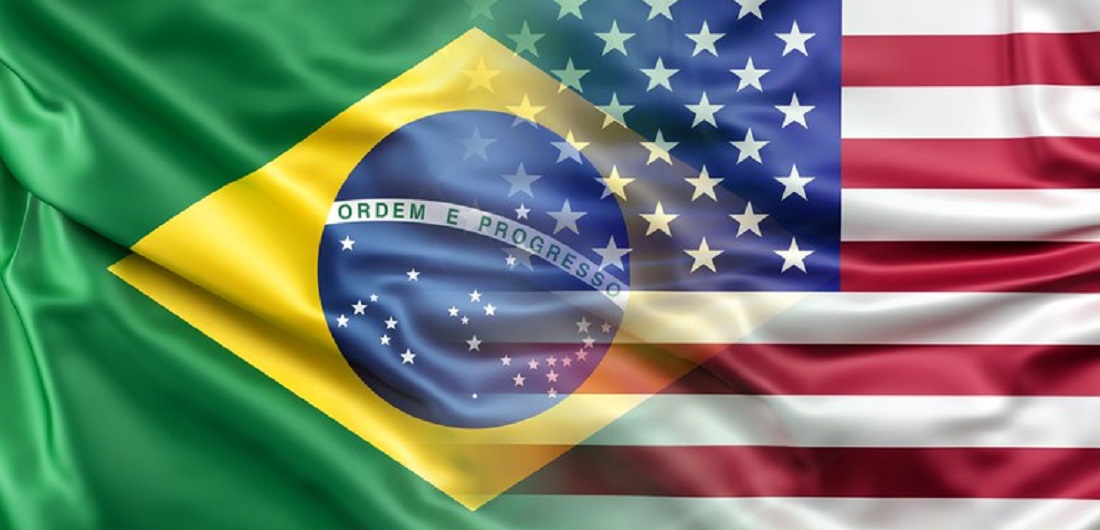
Record Number of Brazilian Companies Now Exporting to the U.S., Strengthening Bilateral Trade Ties
Oct, 09, 2024 Posted by Gabriel MalheirosWeek 202440
The United States has solidified its position as the primary destination for Brazilian manufactured goods, with 9,553 exporting companies in 2023—the highest number in 200 years of bilateral relations. According to the study “Brazil-United States: A Prominent Foreign Trade Relationship,” conducted by the Ministry of Development, Industry, Commerce, and Services (MDIC) and Amcham Brazil, companies exporting to the U.S. tend to offer better wages and employ more women.
In 2023, Brazilian exports of manufactured goods to the U.S. totaled $29.9 billion, making it the top market for this category of products. Since 2002, the U.S. has led in the number of Brazilian exporting companies, second only to Mercosur, which, owing to regional free trade, encompasses 11,253 exporters. Other regions included in the study are the European Union, with 8,496 Brazilian exporters, and China, with 2,847.
Even though the number of companies exporting manufactured goods to the US has increased, Brazilian exports to the world’s largest economy are still dominated by farming goods. The chart below reveals the most exported goods in containers from Brazil to the United States between January and August 2024. The data, extracted from Datamar’s DataLiner platform, comprise only maritime, long-haul shipments.
Top Exports in Containers to the US | 2024 | TEUs
Source: DataLiner (click here to request a demo)
Regional Growth and High-Tech Exports
Export growth to the U.S. has been seen across all Brazilian regions over the past five years (2019 to 2023). The Central-West region led with a 40.4% increase, followed by the South (22.4%), Southeast (22.1%), Northeast (21.3%), and North (9.5%).
“The U.S. remains the largest market for Brazilian high-tech products,” said Tatiana Prazeres, Secretary of Foreign Trade at MDIC, during the study’s presentation. Key exports in this category include aircraft, engines, telecommunications equipment, pharmaceuticals, and medical devices. Prazeres highlighted the importance of the U.S. market as Brazil, under the leadership of Vice President and Minister Geraldo Alckmin, seeks to strengthen its domestic industry and expand the share of Brazilian manufactured goods in global trade.
Amcham CEO Abrão Neto emphasized the need to prioritize strengthening the Brazil-U.S. bilateral relationship, particularly with the support of businesses. “This path offers enormous potential to boost Brazil’s growth, increase the industry’s participation in foreign trade and GDP, encourage innovation and technology, and create more skilled, better-paying jobs,” Neto stated.
Performance of Manufactured Goods
Although China surpassed the U.S. as Brazil’s top export destination in 2009, the U.S. has remained the leading market for Brazilian industrial goods, including high-tech products, for the past nine years. In 2023, Brazilian exports of manufactured goods to the U.S. reached $29.9 billion, outpacing exports to the European Union ($23.5 billion) and Mercosur ($19.4 billion).
Between 2001 and 2023, Brazilian exports of high-tech products to the U.S. averaged 47.7%. The long-standing presence of U.S. companies in Brazil plays a significant role in this strong commercial relationship.
National Impact
The U.S. is the top export market for Brazilian companies in four of Brazil’s five regions. The South is the only exception. Regarding imports, the U.S. ranks as the second-largest partner in all regions. From 2019 to 2023, all regions saw more companies exporting to the U.S.
Impact on Labor and Gender Representation
Companies that export tend to offer higher-quality jobs and better wages. Firms that export to the U.S. provide even more competitive salaries. In 2021, the average monthly wage at these companies was R$4,623.90, 5.4% higher than those exporting to the European Union, 8.5% higher than China, and 11.2% higher than Mercosur.
The study also revealed that 26.4% of companies exporting to the U.S. had a workforce with at least 50% women—the highest rate compared to the European Union (23.9%), Mercosur (18.3%), and China (14.6%). The average salary for women in these companies was also higher. In 2021, women working at companies exporting to the U.S. earned R$3,834.94 per month, 8% more than in the European Union, 15.6% more than in Mercosur, and 15.7% more than in China.
The study highlights the growing importance of the U.S. as Brazil’s trade partner, especially for high-tech exports and advancing gender equality in the labor market. With the strategic leadership of the Brazilian government and the backing of the private sector, the Brazil-U.S. bilateral relationship is poised to continue generating significant economic and social benefits for both countries.
“The quality of trade with the U.S. reflects economic and social benefits for Brazil, as shown in this study, with increased employment and better wages at companies exporting to the U.S. compared to those exporting to other destinations,” noted Fabrizio Panzini, Director of Public Policy and Public Relations at AmCham Brazil.
-
Other Cargo
Feb, 18, 2021
0
2020 furniture exports grew in volume but fell in revenue
-
Other Cargo
Mar, 15, 2024
0
Egg exports grow 69.5% in 2024
-
Shipping
Jun, 15, 2023
0
ONE accelerates digital transformation with telematic devices on reefer fleet
-
Apr, 20, 2020
0
Brazil’s orange juice exports increased 18% in first nine months of 2019/20 harvest

